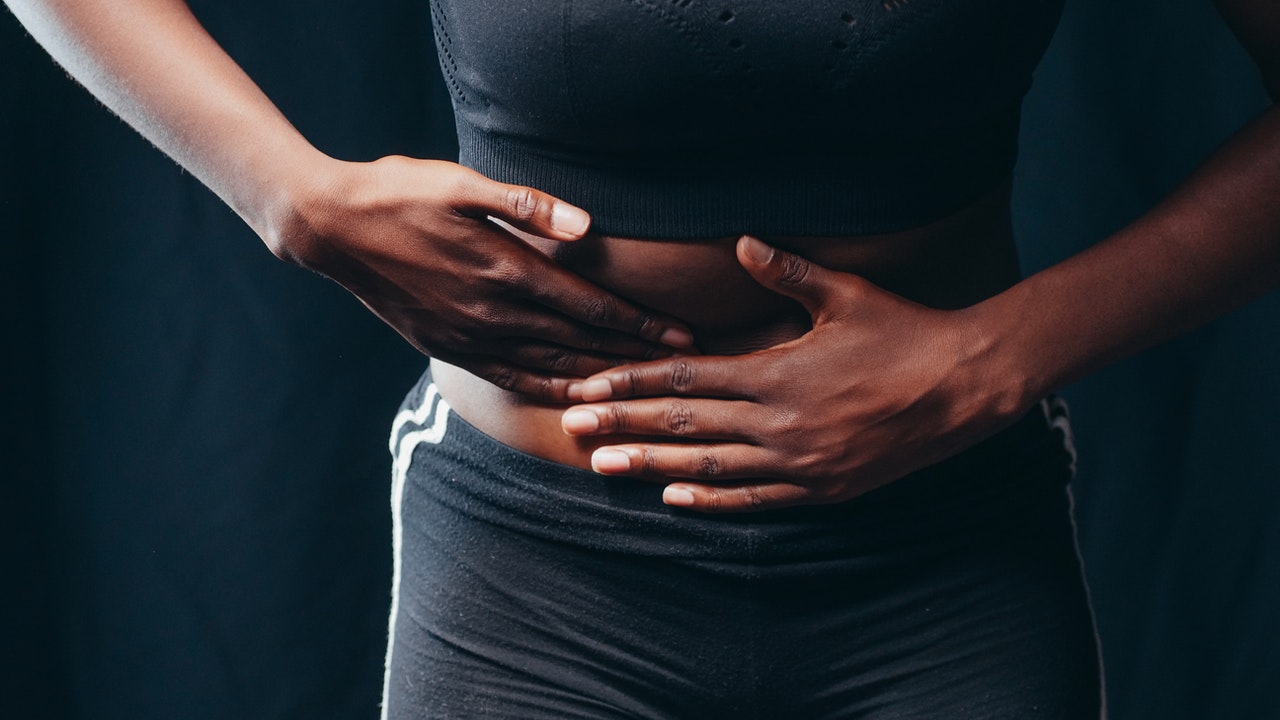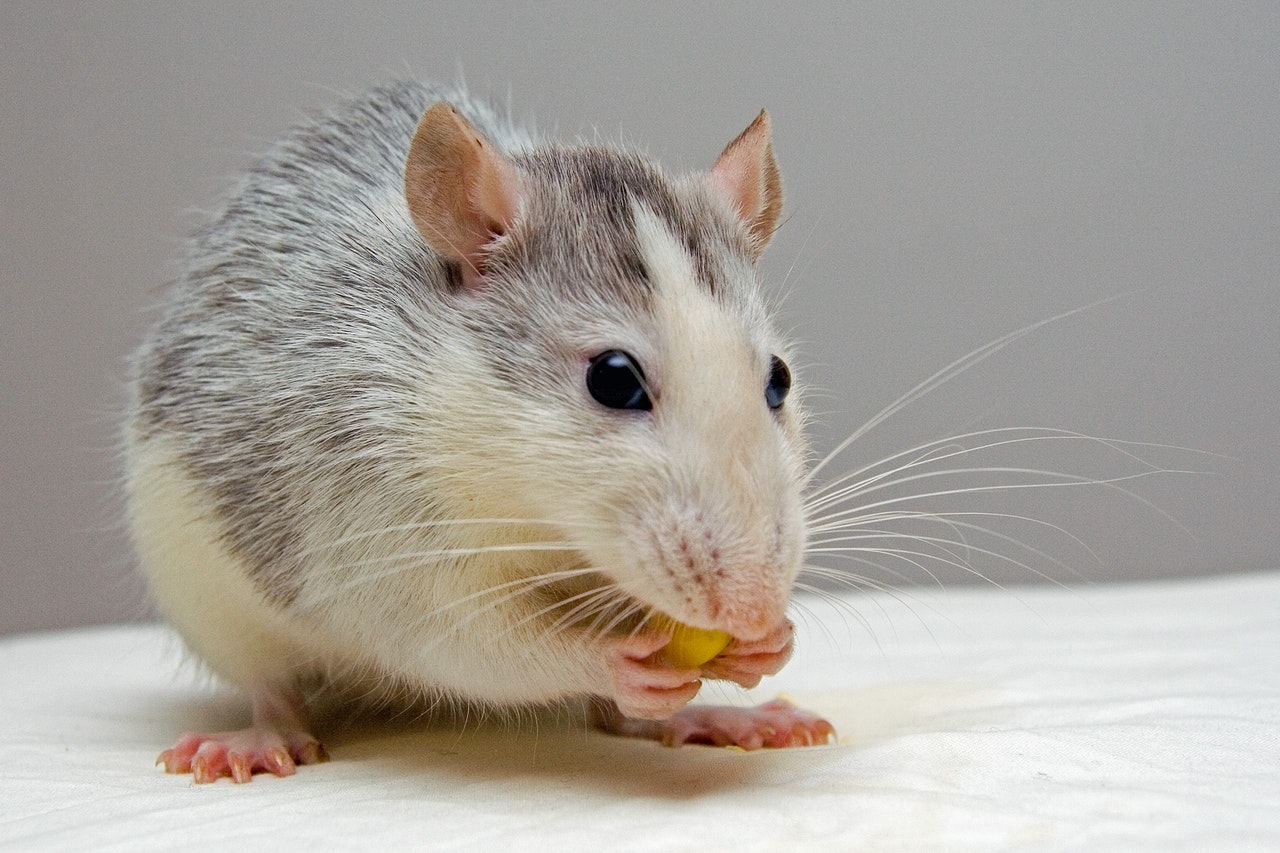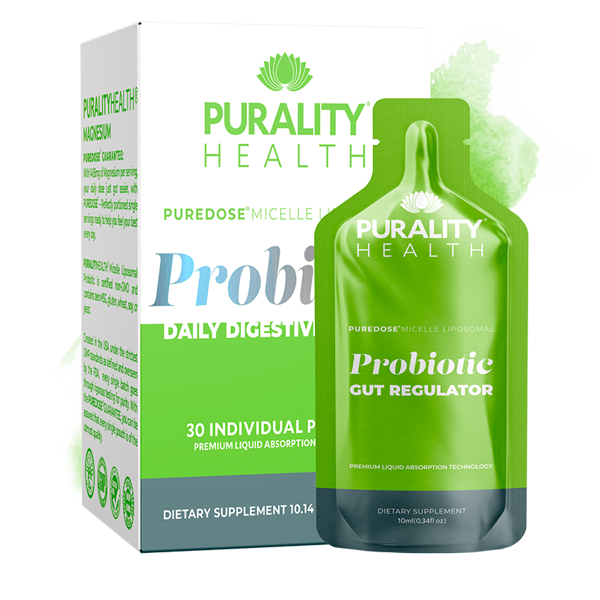Did you know that our gut microbiome is like a fingerprint? It’s true, the diversity of bacteria in our gut is so unique, scientists have begun to think that it is as unique to us as is our fingerprint. [1] And while it might feel a little gross to imagine trillions of little bacteria living within us, don’t write them off just yet.
Science is showing us that the diversity and colony size of certain types of bacteria are incredibly important for human health. While we typically think of bacteria as ‘bad’, there are many beneficial strains of bacteria that are important for…
The development and strength of our immune health
 The microbiome is an important part of our immune health, and it helps us out in a few different ways. Whether bacteria is helpful or harmful, they need resources to grow. When we have large amounts of helpful bacteria, they can use their numbers to compete against the harmful bacteria for space and nutrients. Colonies of helpful bacteria line the intestinal wall, act as a barrier against pathogens (things like harmful bacteria and viruses), and block them from accessing resources. Helpful bacteria can also produce a substance called bacteriocins, which can inhibit the growth of other bacteria. The immune system learns to team up with the helpful bacteria that attaches to certain sites on the intestinal wall, which allows it to recognize and respond to potential threats more rapidly. [2]
The microbiome is an important part of our immune health, and it helps us out in a few different ways. Whether bacteria is helpful or harmful, they need resources to grow. When we have large amounts of helpful bacteria, they can use their numbers to compete against the harmful bacteria for space and nutrients. Colonies of helpful bacteria line the intestinal wall, act as a barrier against pathogens (things like harmful bacteria and viruses), and block them from accessing resources. Helpful bacteria can also produce a substance called bacteriocins, which can inhibit the growth of other bacteria. The immune system learns to team up with the helpful bacteria that attaches to certain sites on the intestinal wall, which allows it to recognize and respond to potential threats more rapidly. [2]
There is also some evidence to suggest that developing a healthy microbiome early in life can help prepare the body to respond to potential allergens. In one study, researchers found that infants who developed food and environmental allergies had different bacterial composition of the microbiome compared to infants without allergies. [3]
The production of certain nutrients
If you’re a fan of fermented foods, like kombucha, sauerkraut, kimchi, yogurt, kefir, or miso, you’re likely enjoying a healthy dose of friendly bacteria! Fermentation is interesting, because the process takes nutritious food items, and boosts them with even more nutrition! That’s because happy, healthy bacteria produce nutritious byproducts as a result of fermentation.
Now, don’t freak out… the bacteria in your gut performs a similar role. When you digest food, you’re feeding these little guys! And they produce some great nutrients in return, such as thiamine (B1), folate, biotin, riboflavin (B2), and pantothenic acid (B6), vitamin K2 and short chain fatty acids. [3] Isn’t that incredible?
They help regulate and maintain our healthy digestive system
If you have a healthy gut microbiome, you might not notice the effects all that much day-to-day. However, if your microbiome gets thrown out of whack, you’d notice the effects of dysbiosis a whole lot more. Dysbiosis occurs when the healthy bacteria in your gut is reduced, and the balance of the microbiome is lost. This affects your ability to maintain normal digestion, and may result in some undesirable side effects, such as:
- – Intestinal discomfort
- – Bloating
- – Cramps
- – Gas
- – Diarrhea
Additionally, researchers suspect that dysbiosis in the microbiome may play a significant role in diseases like irritable bowel syndrome (IBS) and inflammatory bowel disease (IBD). [4-6] So, it’s important to maintain a healthy gut microbiome to promote
These beneficial bacteria that live in the microbiome are part of what’s called a symbiotic relationship – we help each other out! We provide them a place to live, and feed them as food moves through our digestive tract, and they provide us with all the benefits listed above! And that is not even the end of it…
While some of the benefits of a healthy microbiome are pretty well understood, there are many suspected benefits that are still being explored by researchers. One of the more popular claims about the benefits of the microbiome is that it plays an important role in our weight status.
The Relationship between the Microbiome and Weight
The relationship between the microbiome and weight began when one study published in 2004 observed that mice raised in a controlled, germ-free environment had 40% lower body fat content compared to mice raised in a normal environment. This was surprising, because the germ-free mice consumed more food on average than the normal mice. Additionally, when the germ-free mice were given a microbial transplant from the normal mice, they experienced a 60% increase in body fat within two weeks, despite no change in their diet or lifestyle. [7]

Another mouse study looked at the impact of microbial transplantation in genetically identical mice. These mice were fed the exact same diet and lived in the same environment. However, they experienced different rates of weight gain – one mouse was considered obese while the other was considered lean. Additionally, when the microbiome from the obese and lean mice was transplanted to other mice, weight gain occurred in those that received the obese mouse’s microbial transplant, despite the fact that they all ate the same diet. [8]
It’s important to note that these are just animal studies, and can’t be projected onto humans. However, now there has been a plethora of research to explore the effect of a healthy microbiome on weight status in humans. So, can the microbiome influence our weight status? Let’s dive a little deeper.
There is one recent study in particular that may have shed some light on the impact of the microbiome in weight loss attempts. Researchers followed a group of individuals attempting to lose weight in a lifestyle modification program. They conducted a variety of tests in these individuals over the course of their program, and discovered some interesting differences in those who lost weight successfully compared to those who did not.
One important finding of this study was that the researchers found 31 microbiome genes that were associated with weight loss. This means that certain qualities of healthy microbiomes helped some individuals lose weight, and those without these microbial qualities did not lose weight. While this was a relatively modest study with few participants, the findings were significant. Further studies should be conducted to validate the outcome of this study, but the implication means that making small adjustments to the bacterial composition of the microbiome could be combined with lifestyle modifications, like healthy eating and exercise, to influence weight loss. [9]
Maintaining a Healthy Microbiome
As long as the microbiome thrives, we may experience the benefit of our friendly bacteria, from gut and immune health, to potentially even maintaining a healthy weight. However, there are many factors that can lead to damage of the microbiome, which can throw our health for a loop. This includes:
- – Antibiotic use [10]
- – Poor diet [11]
- – Lack of exercise [12]
- – Stress [13]
- – Excessive alcohol intake [14]
 It’s important to control these factors listed above to protect the integrity of the microbiome. The healthy bacteria in our gut won’t flourish without our help. Luckily, there is another way to make sure that our microbiome stays healthy and happy! Purality Health’s Liposomal Probiotic uses the bacteria strain, L. Rhamnosus, a well-studied bacteria that may be beneficial for your gut and immune health, development, and more.
It’s important to control these factors listed above to protect the integrity of the microbiome. The healthy bacteria in our gut won’t flourish without our help. Luckily, there is another way to make sure that our microbiome stays healthy and happy! Purality Health’s Liposomal Probiotic uses the bacteria strain, L. Rhamnosus, a well-studied bacteria that may be beneficial for your gut and immune health, development, and more.
With Purality Health’s special micelle liposomal delivery technology to supercharge bioavailability, you can be sure that this probiotic is going to be worth your investment. Your body will be able to put it to use right away, helping to balance your microbiome and improve your overall health.
>>> Click here to supercharge your microbiome with highly absorbable L. rhamnosus
Citations
- Eric A. Franzosa, Katherine Huang, James F. Meadow, Dirk Gevers, Katherine P. Lemon, Brendan J. M. Bohannan, Curtis Huttenhower. Identifying personal microbiomes using metagenomic codes. Proceedings of the National Academy of Sciences Jun 2015, 112 (22) E2930-E2938; DOI: 10.1073/pnas.1423854112
- Bull, Matthew J, and Nigel T Plummer. “Part 1: The Human Gut Microbiome in Health and Disease.” Integrative medicine (Encinitas, Calif.) vol. 13,6 (2014): 17-22.
- Björkstén B, Sepp E, Julge K, Voor T, Mikelsaar M. Allergy development and the intestinal microflora during the first year of life. J Allergy Clin Immunol. 2001;108(4):516–520. [PubMed] [Google Scholar]
- Morowitz, Michael J et al. “Contributions of intestinal bacteria to nutrition and metabolism in the critically ill.” The Surgical clinics of North America vol. 91,4 (2011): 771-85, viii. doi:10.1016/j.suc.2011.05.001
- Halfvarson, Jonas et al. “Dynamics of the human gut microbiome in inflammatory bowel disease.” Nature microbiology vol. 2 17004. 13 Feb. 2017, doi:10.1038/nmicrobiol.2017.4
- Distrutti, Eleonora et al. “Gut microbiota role in irritable bowel syndrome: New therapeutic strategies.” World journal of gastroenterology vol. 22,7 (2016): 2219-41. doi:10.3748/wjg.v22.i7.2219
- Davis, Cindy D. “The Gut Microbiome and Its Role in Obesity.” Nutrition today vol. 51,4 (2016): 167-174. doi:10.1097/NT.0000000000000167
- Ridaura, Vanessa K et al. “Gut microbiota from twins discordant for obesity modulate metabolism in mice.” Science (New York, N.Y.) vol. 341,6150 (2013): 1241214. doi:10.1126/science.1241214
- Diener, Christian, et al. “Baseline Gut Metagenomic Functional Gene Signature Associated with Variable Weight Loss Responses Following a Healthy Lifestyle Intervention in Humans.” MSystems, 2021, https://doi.org/10.1128/msystems.00964-21.
- Sullivan, A et al. “Effect of antimicrobial agents on the ecological balance of human microflora.” The Lancet. Infectious diseases vol. 1,2 (2001): 101-14. doi:10.1016/S1473-3099(01)00066-4
- Heiman, Mark L, and Frank L Greenway. “A healthy gastrointestinal microbiome is dependent on dietary diversity.” Molecular metabolism vol. 5,5 317-320. 5 Mar. 2016, doi:10.1016/j.molmet.2016.02.005
- Bermon, Stéphane et al. “The microbiota: an exercise immunology perspective.” Exercise immunology review vol. 21 (2015): 70-9.
- Konturek, Peter C et al. “Stress and the gut: pathophysiology, clinical consequences, diagnostic approach and treatment options.” Journal of physiology and pharmacology : an official journal of the Polish Physiological Society vol. 62,6 (2011): 591-9.
- Mutlu, Ece A et al. “Colonic microbiome is altered in alcoholism.” American journal of physiology. Gastrointestinal and liver physiology vol. 302,9 (2012): G966-78. doi:10.1152/ajpgi.00380.2011
